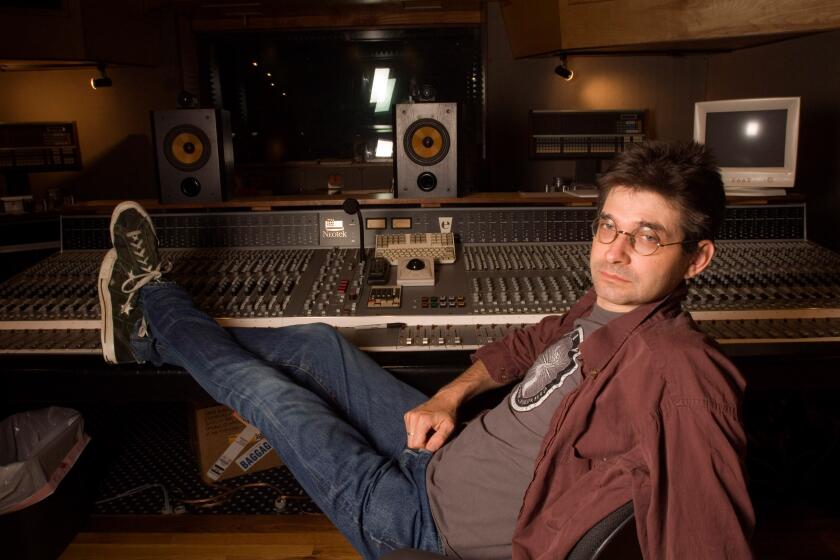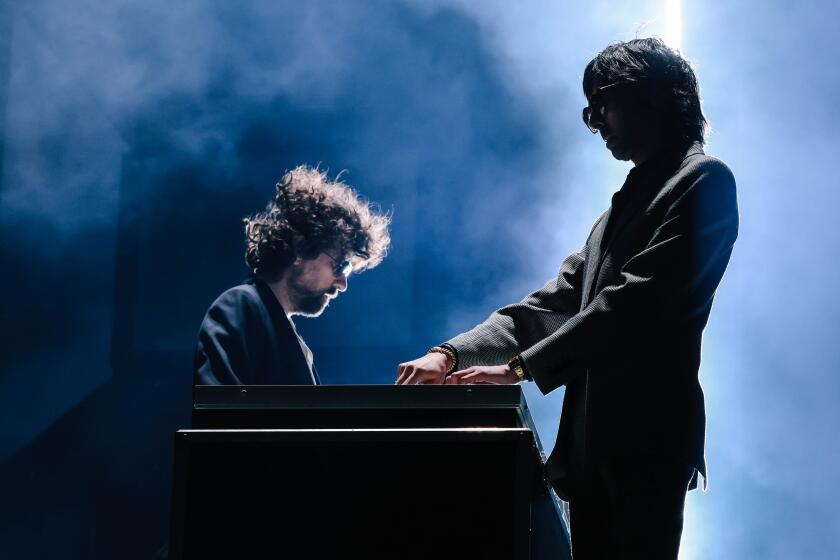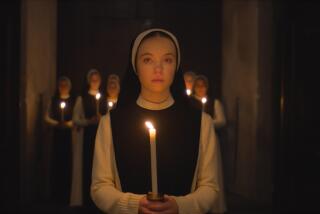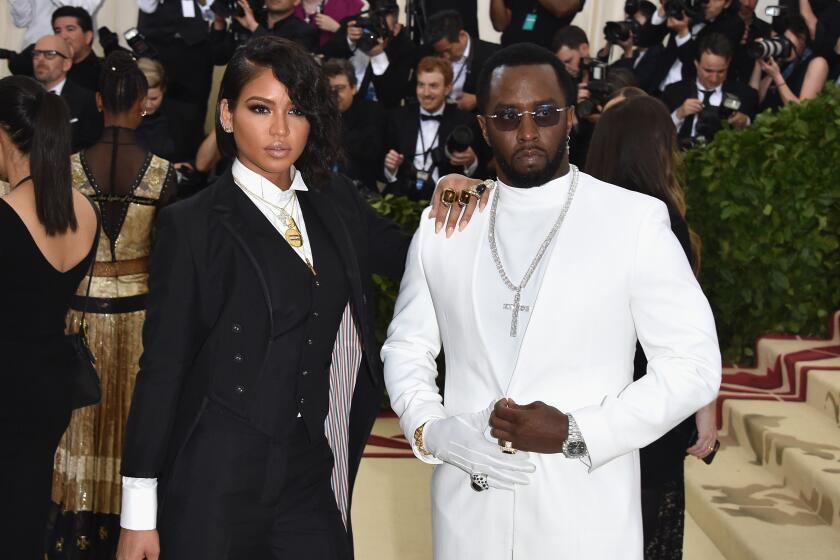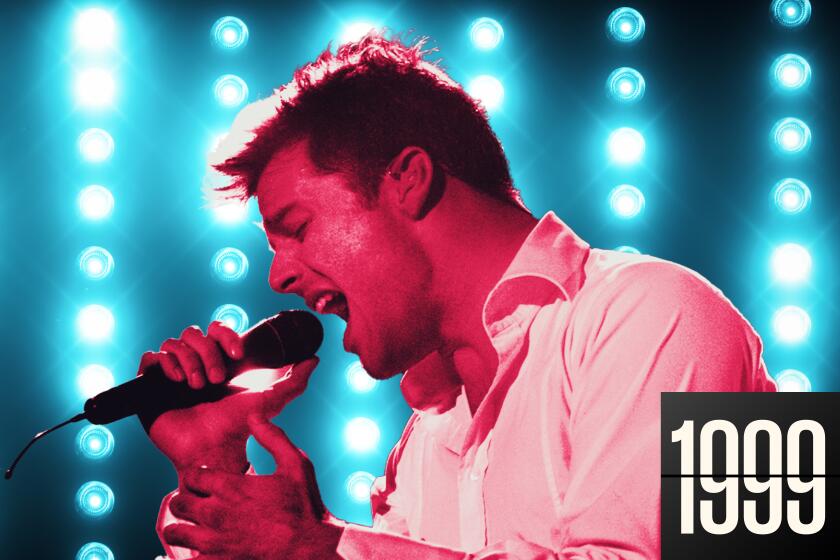Jesus and Mary Chain’s Jim Reid talks about new music, burying brothers’ brutal sibling rivalry ahead of Cruel World
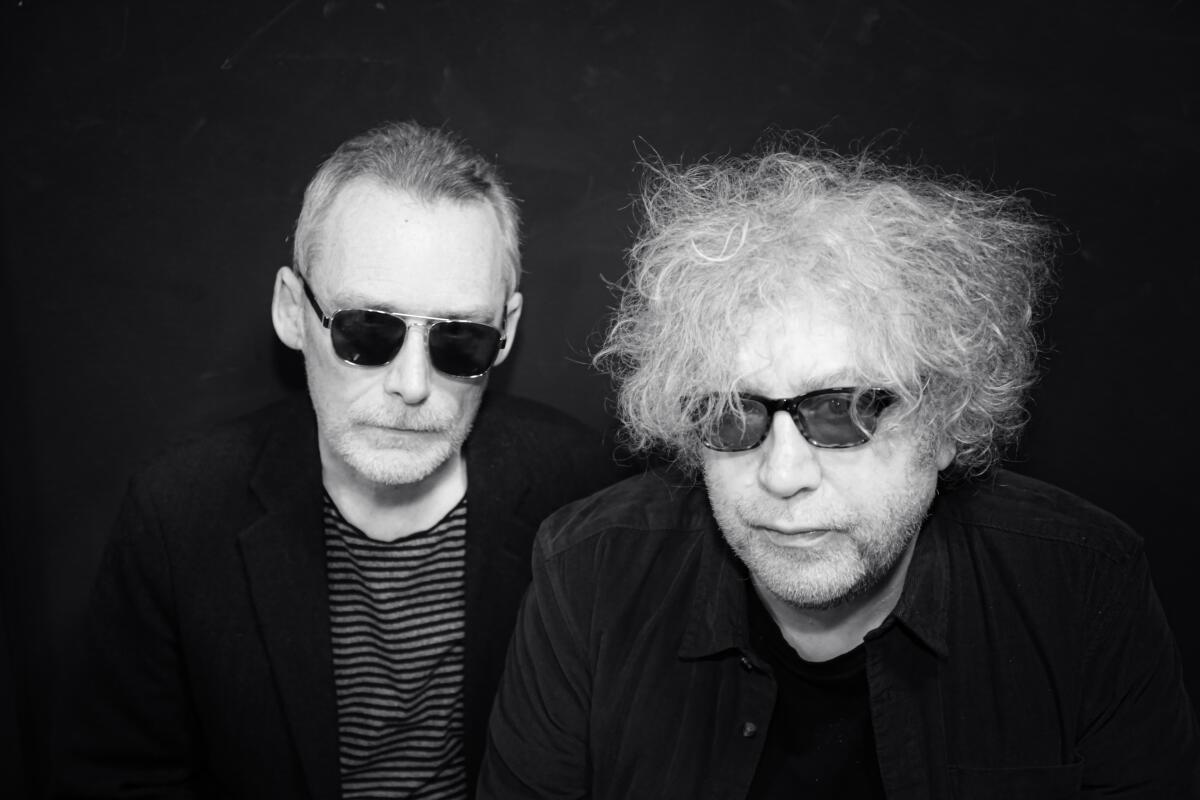
About 40 years ago, Alan McGee, co-founder of the influential British record label Creation Records, who discovered Oasis and other important British rock acts, made a bold declaration: The Jesus and Mary Chain were the best thing since the Sex Pistols. The music press soon widely echoed the comparison due to the Mary Chain’s pop-infused nihilism, edgy style and chaotic live performances — some lasting just 15 minutes.
Founded by Scottish brothers Jim and William Reid, the Jesus and Mary Chain released a bullet-proof debut single in “Upside Down” (1984) and proceeded to hone an individual sound wherein the Shangri-Las, the Velvet Underground, the Beach Boys, Kraftwerk and the Stooges harmoniously converged.
Despite every classic rock ’n’ roll obstacle — including drug and alcohol abuse, savage infighting, band turnover, short-sighted industry suits and the death knell that is the passage of time — the band far outlived the Pistols and is arguably more influential.
The Mary Chain’s albums “Psychocandy,” “Darklands” and “Automatic” became the sine qua non of the 1980s alternative rock movement and carried the band well into the ’90s. In the new millennium, while on hiatus, the group experienced an unexpected renaissance after director Sofia Coppolla used the Mary Chain’s “Just Like Honey” in the final scene of her second feature film, “Lost in Translation.”
On March 22, the band released its eighth studio album, “Glasgow Eyes.” Written and recorded in characteristic Mary Chain fashion — just the Reids alone with their instruments and vision — the album follows the disaffected pop template adored by fans, though there are many more synthesizers than screeching guitars. It also finds the Mary Chain on an independent label and calling its own shots, decades away from the McGee-induced hype.
“We kind of immediately wanted to shut him up for that because that’s hard to live up to,” Jim Reid recalled of the comment. “We could see it was a dangerous comparison, and we wished he hadn’t said it.”
Ahead of their performance at the Cruel World festival in Pasadena this weekend, the singer, songwriter and guitarist spoke about the Reid sibling rivalry, reunification and his hatred of streaming, music documentaries and the term shoegaze, from his home in Devon, in the southwest of England.
The interview has been lightly edited and condensed.
You’re about to release the Jesus and Mary Chain’s eighth studio album. I imagine that you and William have an almost telepathic understanding at this point?
We kinda always have had. It’s pretty well documented that our relationship broke down at one point, but it was built on that total understanding of how to make a Mary Chain record. There was nobody else that knew it. I knew it. He knew it. And that was it. That’s what made it work.
Was there a time when the sibling rivalry hurt the record-making process?
At the end of the ’90s, when we weren’t getting along anymore, weirdly it didn’t get in the way of making the album “Munki.” I think that’s as good as any record we made. But it was starting to become difficult just to do anything. We couldn’t stand the sight of each other.

Is it true that you broke up in Los Angeles, at a 1998 show at the House of Blues?
We’d kind of broken up before that. We played a gig in San Diego and had a massive bust-up in the van on the way back to L.A. It went mental. We were screaming at each other. There were punches, and William said, “That’s it. I’m going to play L.A. tomorrow and then I’m getting the f— out of Dodge.”
I was pretty bad with drinking and drugs at the time so I spent the next 24 hours just getting absolutely wasted. By the time we hit the stage at the House of Blues, I just didn’t know where I was. I looked over and saw William, and I went over and just started screaming at him. He had a weird look on his face, so I turned around and realized that there were all these people staring at me. I thought, “Oh, my God. This is a gig. I’m onstage.” We got dragged offstage and the audience was given their money back. To this day, I’m eternally grateful that it was in the days before smartphones and YouTube because it was a public humiliation, but at least it was only in front of a few hundred people.
Were alcohol and drugs the problem, or did they exacerbate problems that already existed?
I’ve thought about that many times over the years and all I can say is that alcohol and drugs didn’t help. Was it the only reason? Probably no. I think we just started drifting away from each other, to be honest.
You reformed in 2007. How do you keep those tumultuous days behind you?
We kind of hit the wall in 1998 so we know when it’s coming now. I also hardly drink and I don’t take any drugs. He’s a social drinker and doesn’t take any drugs either. So that’s not in the way anymore. We kind of know the warning signs. We both learned from having those heated rows. There’s a line in the sand, and we don’t step over it.
You’ve been around long enough to watch a major shift in the music industry. What do you make of streaming, YouTube and smartphones at concerts?
It’s annoying when you play a gig and all you see is 100 phones pointing at you, but YouTube is also the reason that there’s a lot of younger people coming to see the Mary Chain. A younger band may name-check the Mary Chain, and in a couple of clicks, other young people can find so many things of ours on YouTube and decide for themselves whether it’s good or not. So that’s been good for us. Sea of phones, not so much.
Has the Jesus and Mary Chain benefited from the so-called shoegaze resurgence fueled by Gen Z and TikTok?
Maybe. I don’t really know. To be honest with you, I don’t know what shoegaze is. I know what it’s supposed to mean, but it was something that some clown at the NME [the English magazine the New Musical Express] made up. There was no scene called shoegazing.
What’s it supposed to mean?
The bands that were slightly introverted and not very showbiz. I kind of identify with that. And the bands that are supposedly shoegaze, I like. I used to write my lyrics on my shoes so I could look down and see them. So maybe I invented it?
Maybe you did.
Hmmm. Maybe.
And streaming?
That’s just a disaster, as far as I’m concerned. Imagine you went to work for a week and then at the end of the week the boss said you’re not getting paid. How would you feel? We put everything into making a record. It takes months, and we put our hearts and souls into it, and it’s pretty much given away for nothing at the end of it.
What’s the solution?
I think something’s got to give, but I don’t know what it is. It can’t continue like this. You can’t run a band from nothing. You’ve got guys to pay. If you don’t pay a band a decent wage, they’re not going to do it for much longer.

You’re also set to publish an autobiography this year, is that right?
A journalist called Ben Thompson has talked to me and William separately. He asked us the same questions so you get William’s point of view and mine. Sometimes they’re the same and sometimes they’re wildly different. It’s warts and all. If you’re into the Mary Chain, you’ll probably find it amusing.
And there’s also a documentary coming?
That’s very early stages, to be honest. Nothing much has been shot. A guy, Ben Unwin, who made some of the Mary Chain videos in the ’90s, came to us, interested in doing a documentary, and we immediately went, “No.”
Why?
Loads of people have asked us to do that. When you stick on Amazon or Netflix and there’s all these second-rate documentaries on just about anybody you’ve ever heard of, I hate that. I think they’re all dreadful. And they all make you want to not listen to that band’s music.
So no documentary?
Well, we had him go make a pretend trailer for a pretend documentary that’s already been made. That was our audition. And he did. He made a trailer and we thought, “Oh, that’s pretty good. Let’s make that film.”
What do you think about Todd Haynes’ documentary on the Velvet Underground? I know you’re a big fan of that band.
The thing about it is it was too serious. The Velvet Underground were one of the best bands in the world ever. Although they were a very serious band, I think there was a lot of humor in the Velvets, and it doesn’t come across in that film.
How did you discover them?
In the early ’70s, a copy of “Transformer” found its way into our household. I think William bought it. But Velvet Underground records were really hard to find in Glasgow. When they started getting reissued, we bought the banana album [“The Velvet Underground & Nico”] and just played it from start to finish. We were like, “This is how music should be. This is what it can be.” From that point on, we thought, “We want to be this good and even if we can’t, we’re going to f—ing try.”
The Mary Chain has been around for about four decades. What’s the biggest lesson you’ve learned along the way?
We’re like a lab rat that keeps taking the bit of cheese that’s attached to an electrical wire. We’re not very good at learning from our mistakes. There’s loads of things that I wish I could go back and do again and do right. We signed to Warner Bros. in 1985, and I wish we hadn’t. But you can’t undo these things.
Was there ever a point in your career where you felt like things had gotten too commercial or you’d strayed too far from your original vision?
Not really, because that was always the struggle with us — that we were never commercial enough for the people we were working with. I remember taking “Psychocandy” into Warner’s and they listened to it and started laughing. It was like that with every record we made. It was always a struggle to get a record made and released.
So you’re happy with your current station in life, on a smaller label and doing your own thing?
It makes much more sense to us now, and it’s much more our style. We get left to our own devices. It’s the way I wish it would’ve been back in the day. In the ’80s and ’90s, there always seemed to be somebody behind us with a cattle prod telling us what to do. So now we make a record when we feel like it. We tour when we feel like it. If there’s something that doesn’t feel good, we just say, “No way.”
More to Read
The biggest entertainment stories
Get our big stories about Hollywood, film, television, music, arts, culture and more right in your inbox as soon as they publish.
You may occasionally receive promotional content from the Los Angeles Times.
